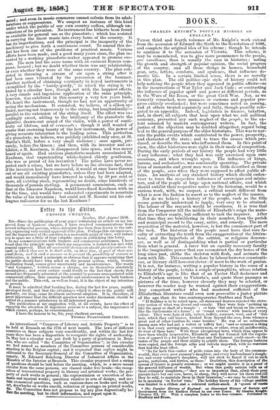Trittr fn flit Ebitnr.
CROSSED CHEQUES.
_London, 218t August 1858. Sin—Since the publication of your paper containing an article on my im- proved form of bankers' cheques, I have received communications from several influential persons, whose attention has been thus drawn to the sub- ject, expressing very cordial approval of the plan. Perhaps this circumstance, and the importance of the question hi a mercantile point of view, will induce you to spare me a little of your valuable space in publishing this letter.
In my communications with bankers and commercial gentlemen, I have found that the principle upon which my suggestion is founded has met with general approval. That all mercantile documents should plainly indicate the mode in which they are to be dealt with, on their face, as part of their ori- ginal form, and in such a manner as to prevent the possibility of erasure or obliteration, is indeed a principle so obvious that it appears surprising that the public should have long acted on the present system, which, besides facilitating fraud, causes great uncertainty and inconvenience. The words "and Company," written across a cheque, are in themselves absolutely meaningless ; and every cashier could testify to the fact that cheeks thus crossed are frequently presented at the counter by persons unacquainted with commercial affairs, thus causing trouble and inconvenience to both bankers and the public. This evil, as well as fraud, it is the object of my intention to_prevent.
It must be admitted that banking has, during the last few years, rapidly developed itself, and that the advantages which it offers to the public will probably, ere long, cause its almost universal adoption. It is, therefore, of great importance that the difficult question now under discussion should be settled in a manner satisfactory to all interested parties. The publication of my suggestion will, at all events, have the effect of engaging the attention of ingenious persons to a subject, the importance of winch cannot, perhaps, be overestimated. I have the honour to be, Sir, your obedient servant,
THOMAS FEARSCOMBE CHORLEY.


























 Previous page
Previous page